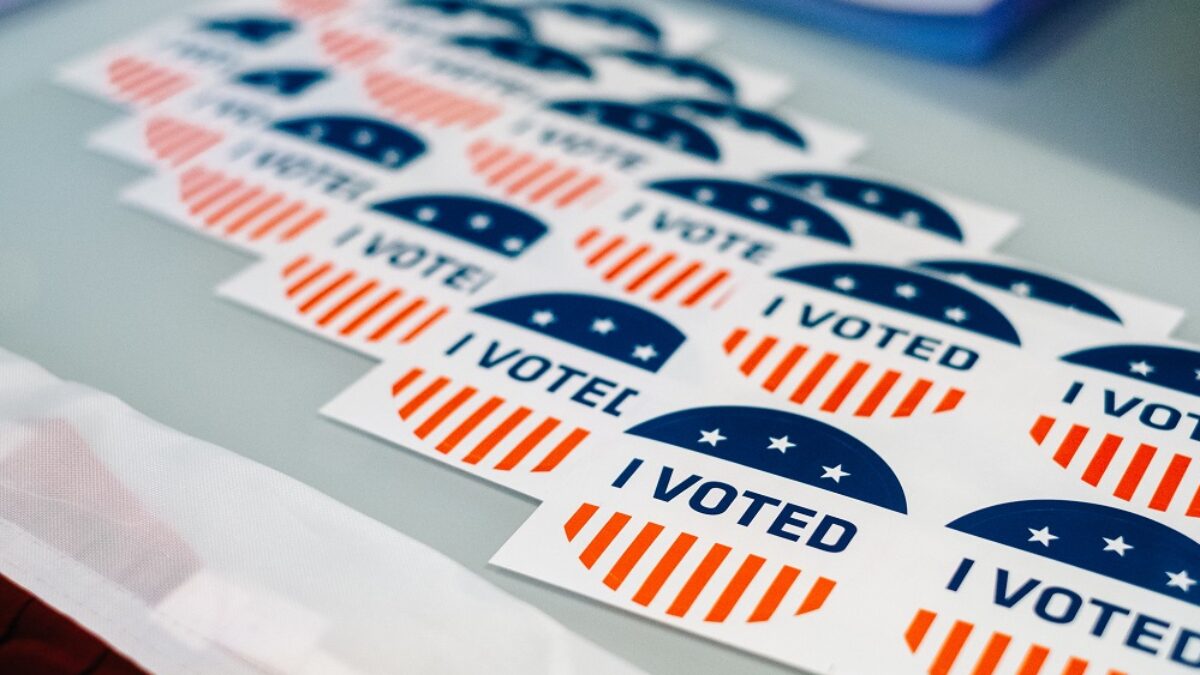
It is widely assumed today that the government’s most fundamental duty is to cater to the whims of popular opinion. The case for eliminating the Electoral College generally hinges on this misguided idea—that some form of national popular vote would better reflect the will of the country.
Leftist website MoveOn.org implores, “Hold presidential elections based on popular vote. One person one vote to determine the one leader who is supposed to answer to all the people of the country.” Hillary Clinton expressed on CNN, “I believe strongly that in a democracy, we should respect the will of the people and to me, that means it’s time to do away with the Electoral College and move to the popular election of our president.”
Similarly, the movement to “pack” the Supreme Court typically grounds its argument on the opinion that it would allow for government to conform more to popular demand: “It might sound drastic … But it [court packing] would help reverse something even more threatening to democracy: indefinite minority rule,” lectures one professor.
“Court-packing is bad, but allowing an entrenched majority on the Supreme Court to represent a minority party that refuses to let Democratic governments govern would not be acceptable or democratically legitimate, either,” warns the New Republic (emphasis added).
The idea of a national referendum whereby voters nationwide would have the right to vote directly on key issues has gained in popularity due to angst over perceived government gridlock. The pervasive attitude today suggests that government ought to bend more readily to the will of the majority. Such thinking, however, is not only shallow and dangerous. It lacks a fundamental understanding of American government.
To be sure, majority rule is a key principle of the U.S. government. It was never intended, however, to be the only principle. Throughout the constitutional convention and ratification debates, our Founders wrestled over how to make government responsive to popular will yet protective of our natural rights. Well-read in political theory and history, they understood that while rule by the people is the best guarantor of freedom, it is wholly insufficient for good government.
Human nature is often impulsive and weak. As such, rule by mere popular demand invites the likelihood of rash, uninformed, and immoderate collective action harmful to both individual rights and the common good. Just as we impose restraints upon personal conduct, the Founders knew we must restrain our collective conduct so we an uncontrolled majority cannot impose its unfettered will. As James Madison explained in Federalist 51:
If men were angels, no government would be necessary. If angels were to govern men, neither external nor internal controls on government would be necessary. In framing a government which is to be administered by men over men, the great difficulty lies in this: you must first enable the government to control the governed; and in the next place oblige it to control itself. A dependence on the people is, no doubt, the primary control on the government; but experience has taught mankind the necessity of auxiliary precautions.
The wisdom of “auxiliary precautions” has been grasped since antiquity. Plato, for example, critiqued radical democracy for putting excessive emphasis on freedom and thus opening itself up to injustice and eventual collapse. Unrestrained freedom, he argued, leads people to overindulge their appetites and act on foolish impulses. Such a state quickly deteriorates into anarchy and mob rule, ultimately betraying the common good. Eventually, this pervasive injustice can open the way for despotism.
As we’ve learned from the outcome of the French Revolution, what began as a democratic Enlightenment project to fulfill the “rights of man” and achieve total equality and freedom culminated in the “common folk” beheading King Louis XVI and vicious mob rule.
Maximilien Robespierre rose to power as a radical democrat who self-identified with the masses and whose pet cause was universal male suffrage. Suspicious of aristocratic elements in society he believed threatened the revolution, Robespierre unleashed horrific levels of violence and destruction during an infamous “Reign of Terror.” Tens of thousands met their fate at the guillotine. Order wasn’t restored until 1799, when Napoleon finally wrested control of the country.
Thankfully, our framers were wiser than their French counterparts were. Drawing upon history from ancient Greece and Rome, John Adams warned posterity to “Remember, democracy never lasts long. It soon wastes, exhausts, and murders itself.”
Compatriot Benjamin Franklin likewise admonished: “Democracy is two wolves and a lamb voting on what to have for lunch. Liberty is a well-armed lamb contesting the vote!” Thomas Jefferson agreed: “A democracy is nothing more than mob rule, where fifty-one percent of the people may take away the rights of the other forty-nine.”
Due to these well-grounded fears, our Founders prudently crafted a government that combined elements of monarchy (the presidency), aristocracy (the Senate), and democracy (the House), while further dividing power between state and federal governments (federalism). As good government requires checks and balances against the excesses of each type of government—and against human nature itself—they devised a selection process for the president to moderate the passions of the voting populace (the Electoral College). Make no mistake: our government was designed to be a democratic, constitutional republic.
Today, our affinity for democracy grows in proportion to our ignorance of both government and history, worsened by our naivety regarding human nature. Fortunately, however, the shallowness of the notion that government should be more responsive to popular impulse is easily exposed and is enough to invite suspicion toward movements premised on that idea.
Sadly, a superficial understanding of democracy and government is still far too widespread, and it’s a shame that American government must be defended against itself. Abraham Lincoln speculated that should we meet our demise it was likely to emanate from within. Our framers shared that foresight. Asked by a passerby following the constitutional convention what type of government was devised, legend has it that Franklin wisely replied, “A republic, madam, if you can keep it.” If, indeed.







